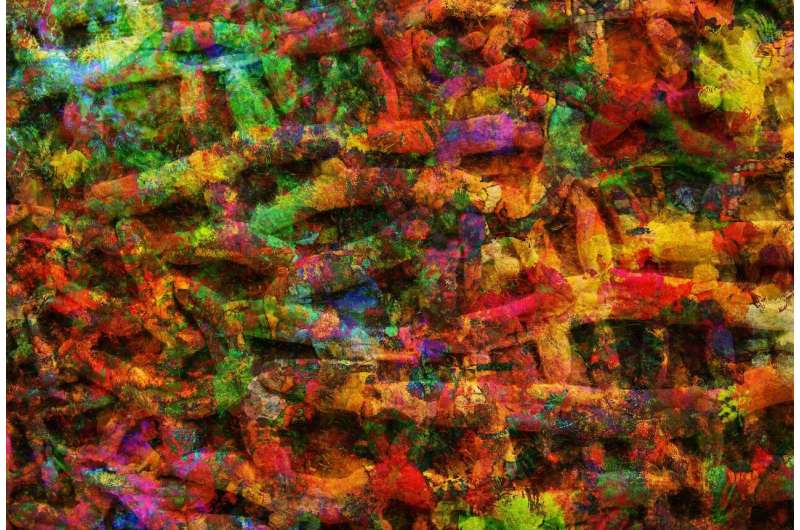Methane-eating bacteria like nitrogen, too

Methane-eating bacteria can degrade ammonium in addition to methane, as discovered by microbiologists at Radboud University and the Max Planck Institute in Bremen. Methane-eaters are important for the reduction of greenhouses gas emissions from volcanoes and other areas, but have not previously been linked with nitrogen emission. The study will be published this week in PNAS.
In 2007 Radboud microbiologists discovered special methane-eating bacteria in a mud pot of the Solfatara volcano near Naples. This finding was published in Nature, as the bacterium can survive under extreme conditions, such as temperatures of 55 degrees and pH values between 1 and 3. Moreover, this bacterium only grows in the presence of rare earth elements. The microbiologists are currently studying the properties of these 'extremophiles."
The researchers discovered that the bacterium is able to degrade ammonium in addition to methane. This is a life-saving property as these organisms are often confronted with high, toxic concentrations of this nitrogen compound in their living environment, such as in volcanos, landfill sites or rice fields.
Toxic hydroxylamine is formed by the degradation of ammonium. With the mHAO enzyme described in the PNAS article, these bacteria can degrade this compound to nitric oxide (NO), which can be further converted to nitrite (NO2-) or nitrous oxide (N2O)that is non-toxic for the bacterium. This enables them to deal with high ammonium concentrations.
"The elemental cycles we have found are much more complicated than we thought," says Huub Op den Camp, professor of Microbiology of Acidic Volcanic Ecosystems at Radboud University. "Methane-eating bacteria aren't normally linked with nitrogen emission. It now appears that these bacteria are also involved in this, in addition to the bacteria that normally oxidize ammonium in the soil."
More information: Wouter Versantvoort et al., Multiheme hydroxylamine oxidoreductases produce NO during ammonia oxidation in methanotrophs. PNAS (2020). (to be published)
Journal information: Proceedings of the National Academy of Sciences , Nature
Provided by Radboud University




















